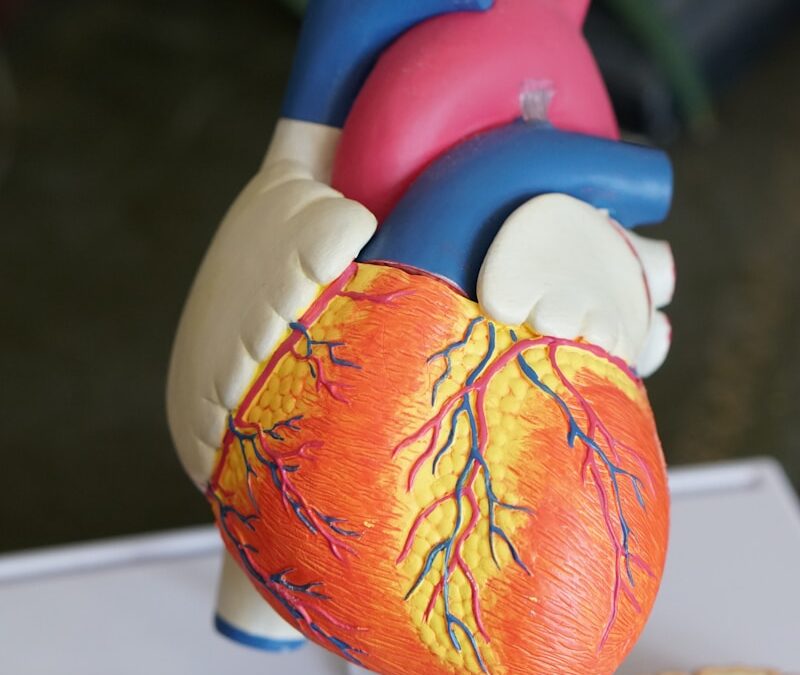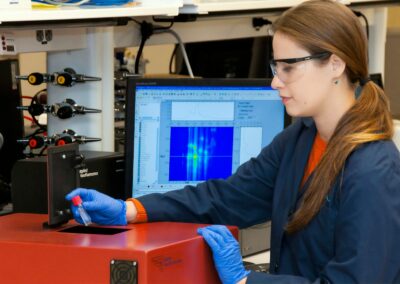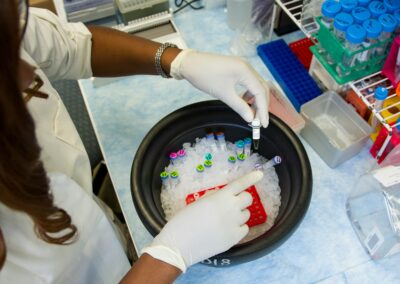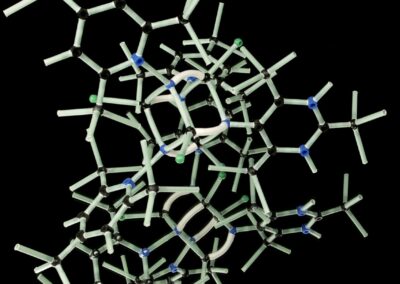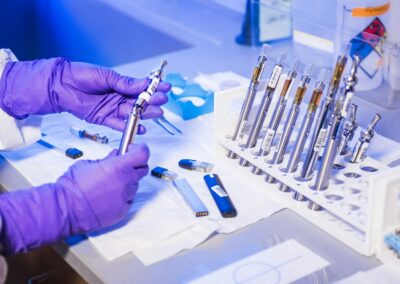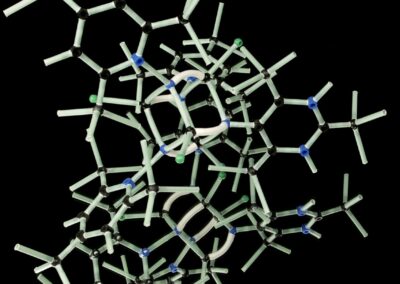Introduction to Genetic Augmentation
The Promise of Genetic Augmentation
Genetic augmentation represents a transformative approach in Healthcare Systems, offering the potential to enhance patient care by directly modifying genes to treat or prevent diseases. This technology involves altering an individual’s genetic material to correct defects, boost resistance to diseases, or even enhance physical and cognitive abilities. The integration of genetic augmentation into existing healthcare systems can significantly improve patient outcomes, reduce the prevalence of chronic diseases, and pave the way for personalized medicine.
Countries like Saudi Arabia and the UAE are at the forefront of embracing modern technology, including genetic research. Riyadh and Dubai are rapidly becoming hubs of innovation, with significant investments in biotechnology and healthcare infrastructure. This commitment positions these nations as leaders in the adoption of genetic augmentation technologies, aligning with their vision of becoming global pioneers in scientific advancements.
As genetic augmentation advances, it is essential to establish robust frameworks to guide its integration into healthcare systems. This involves addressing ethical considerations, ensuring equitable access, and fostering collaboration between various stakeholders, including governments, healthcare providers, and the biotechnology industry.
Enhancing Patient Care through Genetic Augmentation
Genetic augmentation holds the promise of revolutionizing patient care by providing more effective treatments for a range of conditions. For example, genetic therapies can be used to treat inherited disorders such as cystic fibrosis and muscular dystrophy by correcting the underlying genetic mutations. This approach offers the potential for long-term cures, reducing the need for ongoing treatments and improving the quality of life for patients.
In Saudi Arabia and the UAE, integrating genetic augmentation into healthcare systems can enhance the ability to manage genetic disorders that are prevalent in the region. By developing and implementing genetic therapies tailored to the specific needs of their populations, these countries can significantly reduce the burden of genetic diseases and improve overall public health.
Moreover, genetic augmentation can facilitate the development of personalized medicine, where treatments are tailored to an individual’s genetic profile. This personalized approach can lead to more effective and targeted therapies, minimizing side effects and improving patient outcomes. The adoption of personalized medicine can transform healthcare delivery, making it more efficient and patient-centric.
Integrating Genetic Augmentation into Existing Systems
The successful integration of genetic augmentation into existing healthcare systems requires a multi-faceted approach. First, it is crucial to invest in advanced genetic research and development to ensure the availability of cutting-edge therapies. Saudi Arabia and the UAE have already made significant strides in this area, with state-of-the-art research facilities and strong support for scientific innovation.
Second, healthcare providers need to be trained in the application of genetic therapies. This includes developing specialized curricula for medical professionals and establishing centers of excellence that focus on genetic medicine. By equipping healthcare workers with the necessary skills and knowledge, countries can ensure the effective and safe administration of genetic treatments.
Third, robust regulatory frameworks must be established to oversee the use of genetic augmentation. These regulations should address safety, efficacy, and ethical concerns, ensuring that genetic therapies are developed and administered responsibly. Saudi Arabia and the UAE can lead the way in creating comprehensive regulatory standards that can serve as models for other nations.
Ethical Considerations and Regulatory Frameworks
Ethical Considerations in Genetic Augmentation
The ethical implications of genetic augmentation are significant and must be carefully considered. Issues such as consent, privacy, and the potential for unintended consequences require thorough examination. Public engagement and education are essential to build trust and ensure that individuals are fully informed about the benefits and risks associated with genetic therapies.
Incorporating genetic augmentation into healthcare systems also raises questions about equity and access. It is crucial to ensure that these advanced treatments are accessible to all segments of the population, preventing disparities in healthcare. Policies that promote inclusivity and fair distribution of genetic technologies will be essential in achieving this goal.
Saudi Arabia and the UAE can play a pivotal role in addressing these ethical concerns by developing guidelines that prioritize patient rights and ethical standards. By fostering a transparent and inclusive approach, these countries can lead the global discourse on the ethical use of genetic augmentation in healthcare.
Establishing Robust Regulatory Frameworks
Effective regulatory frameworks are critical to the safe and ethical integration of genetic augmentation into healthcare systems. Regulations should encompass all aspects of genetic therapies, from research and development to clinical application. This includes stringent safety protocols, rigorous testing, and continuous monitoring to ensure the efficacy and safety of genetic treatments.
Saudi Arabia and the UAE have the infrastructure and expertise to establish comprehensive regulatory frameworks that can serve as benchmarks for other countries. Collaboration with international regulatory bodies can further enhance these efforts, promoting global standards and facilitating the exchange of best practices.
Moreover, fostering public-private partnerships can accelerate the development and implementation of genetic therapies. By bringing together the resources and expertise of various stakeholders, these partnerships can drive innovation while ensuring that regulatory and ethical standards are upheld.
Conclusion
Genetic augmentation has the potential to transform healthcare by providing more effective treatments and enabling personalized medicine. Integrating this technology into existing healthcare systems can significantly improve patient care and address some of the most pressing health challenges. Saudi Arabia and the UAE, with their strong commitment to advancing modern technology and healthcare, are well-positioned to lead the way in adopting genetic augmentation.
However, the successful integration of genetic augmentation requires careful consideration of ethical and regulatory issues. By developing robust frameworks and ensuring equitable access, countries can harness the potential of genetic technologies for the betterment of public health. With thoughtful planning and collaboration, genetic augmentation can pave the way for a healthier and more resilient future.
#GeneticAugmentation #HealthcareInnovation #Biotechnology #SaudiArabia #UAE #Riyadh #Dubai #ArtificialIntelligence #Blockchain #TheMetaverse #ExecutiveCoaching #GenerativeAI #ModernTechnology #BusinessSuccess #LeadershipSkills #ProjectManagement

